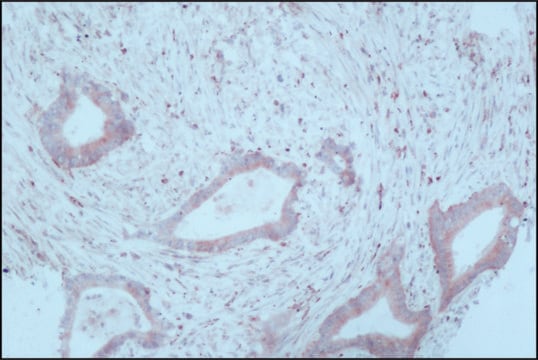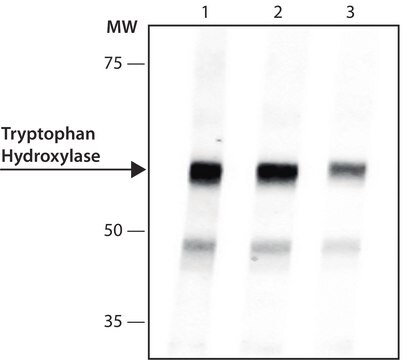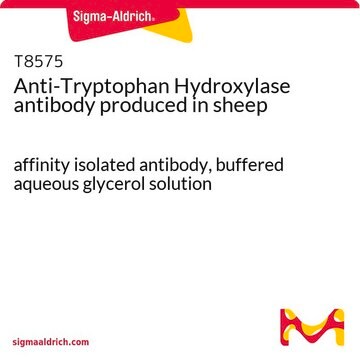ABN60
Anti-Tryptophan hydroxylase 2 Antibody
from rabbit, purified by affinity chromatography
Synonym(s):
tryptophan hydroxylase 2, Tryptophan 5-monooxygenase 2, Neuronal tryptophan hydroxylase, tryptophan 5-hydroxylase 2
About This Item
Recommended Products
biological source
rabbit
Quality Level
antibody form
affinity isolated antibody
antibody product type
primary antibodies
clone
polyclonal
purified by
affinity chromatography
species reactivity
human, rat
species reactivity (predicted by homology)
mouse (immunogen homology)
technique(s)
immunohistochemistry: suitable (paraffin)
western blot: suitable
NCBI accession no.
UniProt accession no.
shipped in
wet ice
target post-translational modification
unmodified
Gene Information
human ... TPH2(121278)
General description
Immunogen
Application
Neuroscience
Signaling Neuroscience
Quality
Western Blotting Analysis: 0.2 µg/mL of this antibody detected Tryptophan hydroxylase 2 on 10 µg of rat brain tissue lysate.
Target description
Physical form
Analysis Note
Rat brain tissue lysate
Disclaimer
Not finding the right product?
Try our Product Selector Tool.
Storage Class Code
12 - Non Combustible Liquids
WGK
WGK 1
Flash Point(F)
Not applicable
Flash Point(C)
Not applicable
Certificates of Analysis (COA)
Search for Certificates of Analysis (COA) by entering the products Lot/Batch Number. Lot and Batch Numbers can be found on a product’s label following the words ‘Lot’ or ‘Batch’.
Already Own This Product?
Find documentation for the products that you have recently purchased in the Document Library.
Our team of scientists has experience in all areas of research including Life Science, Material Science, Chemical Synthesis, Chromatography, Analytical and many others.
Contact Technical Service







